The Max factor: how Max Chandler-Mather and the Greens ambushed Brisbane
If the teal wave that hit the Liberal heartland in Sydney and Melbourne was a standout, the Greens’ onslaught in Brisbane was just as epic. How did Max Chandler-Mather do it?
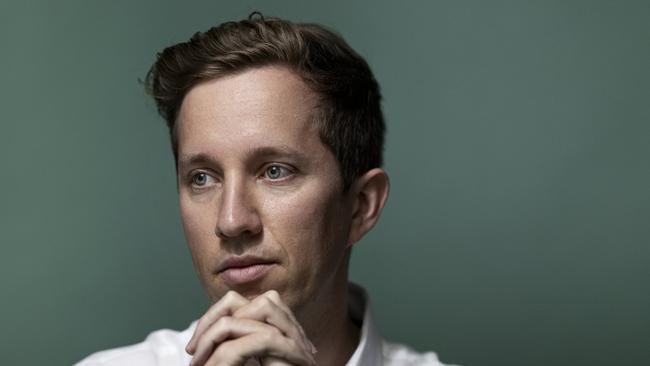
We’re talking business suits because Max Chandler- Mather doesn’t own one, and there’s a dress code where he is going. A lot of things are about to change in the young man’s life: chauffeured rides in the big white ComCar instead of his rattling 2005 Yaris, a new office staffed with taxpayer-funded help, paid business class travel and that juicy $217,060 annual base salary he will earn as a rookie federal MP, which is more than three times what the Greens ever paid him. “It’s outrageous,” he says.
Then again, so is the ambush his party pulled off last month in his hometown. If the teal wave that hit the Liberal heartland in Sydney and Melbourne was a standout of the May 21 general election – delivering blue-ribbon prizes such as Wentworth, Bennelong and Kooyong to Climate200-backed Independents – the Greens’ onslaught in Brisbane was just as epic. Chandler- Mather, 30, snatched Kevin Rudd’s old seat of Griffith off the Labor Party and his fingerprints were all over the campaigns that dispatched sitting Liberals in two other inner-city divisions. The election of a second Greens senator for Queensland, formerly their heartbreak state, entrenched a decisive shift in the balance of power inside his party and potentially for the nation’s polity.
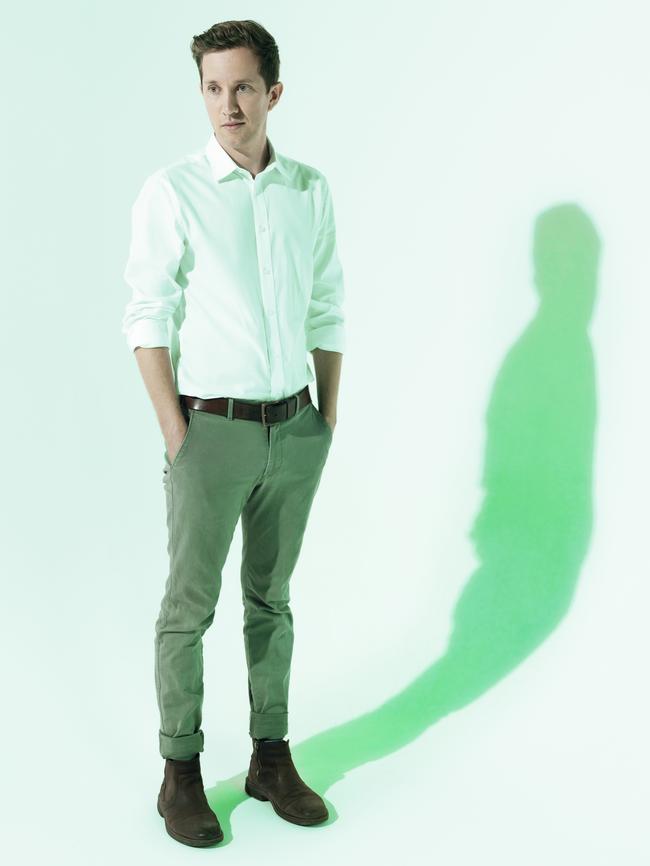
But first things first. In addition to suit shopping (his one, shopworn 10-year-old sports jacket no longer fits) he is coming to terms with the new job. Parliamentary Services in Canberra has been on the phone to run through the dos and don’ts of an MP’s entitlements and he is arranging to move into the electorate office vacated by Terri Butler, the high-profile ALP frontbencher he put to the sword. Treasurer Jim Chalmers, the Government’s ranking Queenslander, has quietly reached out to get his number and you can bet he will be calling soon. The Greens are on track to return a record 12 senators, which means Labor won’t legislate a cracker without their support in the upper chamber, backed by at least two other votes to secure the required majority on bills opposed by the Coalition.
In the House, where they’ve only ever held one seat, the re-election of Melbourne-based leader Adam Bandt gives them four spots on a crowded crossbench with the incoming trio from Brisbane, the second most powerful bloc behind the more loosely aligned teals and progressive Independents Andrew Wilkie, Helen Haines and Rebekha Sharkie. If Labor wants to enshrine in law its centrepiece target to cut emissions by 43 per cent this decade, it must make an unlikely bargain with the Opposition or get the Greens onside in the Senate, a sizeable ask when they are shooting for a 75 per cent reduction on 2005 levels by 2030 and net-zero emissions by 2035. Ditto for the rest of the election promises Anthony Albanese has vowed to implement.
So how does it feel to be the dog that caught the car? I ask Chandler-Mather as we settle in to tackle another first – an in-depth profile in the national media. He laughs, shaking a head of tousled hair, his pale blue eyes twinkling. “Based on the ordinary rules of politics we probably shouldn’t be where we are,” he says. “The way I describe it, we are just a bunch of young renters who grew up in the area we ended up organising, because it happens to be the area we love, and if things hadn’t worked out I would probably have gone off and done a PhD and taught history and some of the others would have drifted off and done other things like social work, that sort of community-based stuff. For me it reflects what’s special about our project, a positive thing, something we can build on here in Queensland and maybe elsewhere. Let’s face it, politics needs a bit of a refresher at the moment.”
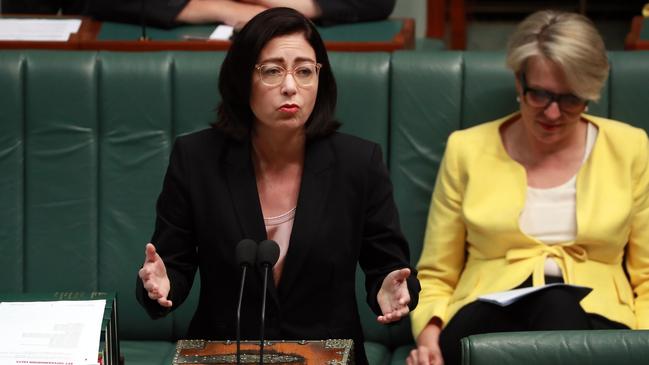
The gnashing of teeth in Butler’s shell-shockedcamp on election night was not just about her demise in Griffith. She’d been earmarked as the incoming environment minister with talk of all kinds of possibilities down the track and her defeat was a genuine surprise, alongside the Greens’ success in picking up the seats of Ryan and Brisbane from the Liberals. Worse still, it had been orchestrated by a fellow traveller: Chandler-Mather, you see, was the one who got away from the ALP.
At the University of Queensland, not so long ago in the short, sharp trajectory of his political rise, he was a card-carrying party member and confirmed rebel rouser on the Labor Left. His crowning achievement in 2013, while completing an honours degree in history, was to stitch together a coalition of like-minded activists to oust the Young Liberals who had run the UQ student union for the best part of a decade. His reward was the editorship of the campus newspaper, Semper Floreat, but the honeymoon didn’t last long. The Left had finally become ascendant in the Queensland labour movement, seizing control of the ALP machinery and councils after decades of dominance by right-wing factions, and an idealistic Chandler-Mather was bitterly disappointed this didn’t translate into action on the issues he cared about, especially immigration. He was appalled that the offshore processing of asylum seekers had recommenced on Nauru under a federal Labor government, augmented by Rudd’s deal with PNG to send boatpeople to Manus Island as well.
He was also working casually in the call centre of what was then United Voice, the rebadged Miscellaneous Workers’ Union (now called the United Workers Union), a national player in the industrial Left. Part of the job was to talk around disgruntled members who had quit the union, which didn’t help his frame of mind. “At the end of the day, I couldn’t in good conscience stay as a member of the Labor Party,” he recalls. “If that meant giving up my involvement in politics, then so be it. I was out.”
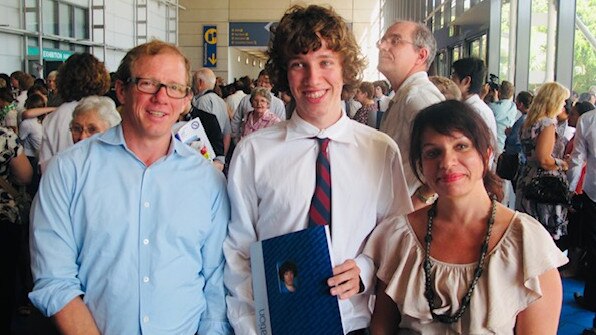
His parents, Tim Mather and Kim Chandler, tried to talk him around. Like he and longtime partner Jo Horton, they had met at university while Mather was taking a second run at an arts degree. Baby Max was brought home to a shared house in splendidly named Whynot Street, West End, a few doors along from the cottage they would later buy. He grew up with two brothers playing barefoot cricket on the road after school, “the kind of idyllic childhood that just doesn’t happen these days in the city”, his father says. A retired policy officer with the State Library of Queensland, Mather, 59, was a rusted-on Labor voter who had rubbed shoulders at UQ with the likes of future premier Anna Bligh, while 53-year-old Chandler became the first in her working-class family to gain a tertiary qualification, in social work. They had encouraged their eldest son to join the Whitlam Club at UQ and in turn the ALP.
“It was a big deal to leave,” Chandler-Mather says. “I had all these friends, connections. It sounds like I am talking myself up but it’s true: I left on principle.” Some of his contemporaries in the party, now working their way through the apparatchiki in the union movement or political offices, remember things differently. “Max was a good organiser, smart, hardworking but he was too nuts for us,” says one former colleague. “A pseudo-communist in mentality and approach,” harrumphs another.
One of the tidbits being shared in ALP circles – where everyone seems to have a take on the Max factor – is audio of a 90-minute speech he delivered in May 2018 to mark the 200th anniversary of Karl Marx’s birth. It takes some finding, but the section singled out by former NSW state Greens MP Jeremy Buckingham involves a reference to domestic violence, going to the general point that law and order crackdowns don’t necessarily lower crime.
Buckingham, a trenchant critic of the Greens since he was dumped in a messy preselection brawl in 2019, says Chandler-Mather was making the case against harsher penalties for DV, a reach on any fair reading of the speech. The party has been hijacked by “ultra-left, self-declared militant revolutionaries who are rabidly anti-capitalist in their world view,” Buckingham says. “I can tell you one thing: they’re big fans of [former British Labour Party leader] Jeremy Corbyn and [former NSW Greens hardliner] Lee Rhiannon but they don’t have much time for [foundational Australian Greens figures] Bob Brown or Christine Milne.”
Chandler-Mather rejects this. Anyway, who wasn’t a ratbag at uni? “I was quite interested in leftist theory, but I wasn’t specifically a Marxist,” he insists. “I would describe myself at UQ as a democratic socialist.” His drift to the Greens was gradual. After graduating with first-class honours in history he had planned to join Jo, now 30, in Chicago where she was completing a master’s degree in anthropology. Then a budding Greens candidate named Jonathan Sri, with whom he had worked on the 2013 Reform putsch on the student union, came knocking. He was running for Brisbane City Council and wanted Chandler-Mather to organise the campaign: “I said to Jonno, ‘You’re mad, you’re not going to win’.”
He didn’t have much time for the Greens, either. “I just didn’t see them as being this serious thing. I vaguely agreed with some of their policies, but didn’t see them as being able to change the world,” he says. In the event, Sri prevailed. Together, they turned a $14,000 printing budget into a 14 per cent swing to take The Gabba ward on Liberal preferences, the first Greens victory in Queensland outside the Senate. And it got people thinking and talking and planning.
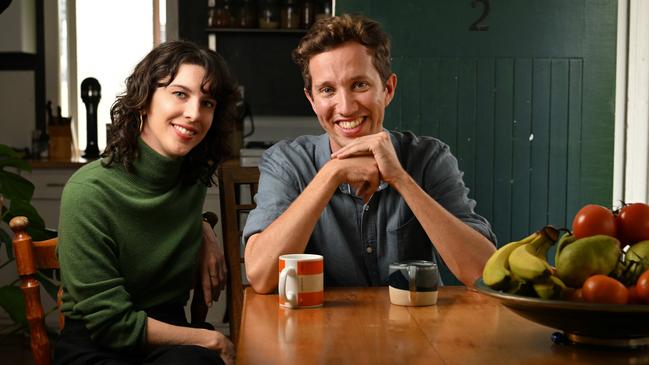
In hindsight what happened next seems entirely predictable, the kind of waypoint-studded race plan Chandler-Mather would have mapped out when he was running cross-country in the Queensland age titles. Surge here, ease up there, evaluate the competition and wear them down until that make-or-break kick to the finish. Get it right and you win. Because, as everyone in the game knows, there’s no second prize in politics.
Unfortunately, in the real red-of-claw cagefight of an election campaign much of what happens is outside the control of the individual contender, no matter how clever you are or how hard you and the team work. Especially for a third-party candidate. The system is set up to be a two-horse race. House seats are decided on the two party-preferred vote, from which the remaining starters are progressively eliminated, releasing their preferences. A top-two finish in the primary count at the expense of either the Liberal Party or Labor is the only sure way for a Green to prevail.
Sri’s victory at the 2016 council election opened doors for his fresh-faced campaign manager. At the following year’s state election Chandler-Mather helped the Greens break into Queensland parliament, snatching the hotly contested seat of Maiwar from the Liberal National Party in Brisbane’s inner west. He stood in Griffith in 2019 and took some skin off Butler, securing an encouraging 6.7 per cent swing to the Greens, but the Queensland hoodoo held: despite the traditional hype over their prospects in the House, they didn’t go close to winning a seat there. Co-deputy leader and Senate leader Larissa Waters, though, was re-elected in the upper chamber. When a second Greens MP made it into state parliament in 2020 on the back of a double-digit primary vote in inner-Brisbane, it showed the ground was shifting.
Greyhound lean and an avowed non-smoker – his paternal grandmother Patricia died of emphysema, enough to swear him off cigarettes for life – Chandler-Mather still thinks like an endurance runner and pounds out 7km at least twice a week. “The thing about cross-country running is it’s very painful, it’s basically pain management. And there were periods in campaigning when I had a bit of the long-distance runner mentality about it,” he says. “You are just exhausted, working seven days a week, getting up early and going to bed late, and you do just have to switch off that part of your brain that is saying, ‘you’re really tired, get some rest’ to keep going.”
By then, he was employed full time by the Greens in the role of state strategist, earning about $60,000 a year, the most he’d ever been paid. He isn’t in politics for the money. The one-bedroom flat he and Jo rent in Woolloongabba, 10 minutes’ drive from Whynot St, costs $350 a week and the couple has no plans to upgrade; they like the vegie patch, he explains. But 2020 brought home how brutal the business can be. The Greens’ prime target at the state election was former deputy premier Jackie Trad in her seat of South Brisbane, deeply familiar ground for Chandler-Mather. Leaving aside that he has never lived anywhere else, the state electorate is contained almost entirely by Griffith. He threw himself into the campaign.
Labor threw the kitchen sink at protecting Trad, the queen of the state parliamentary Left despite being forced to quit the ministry and as Annastacia Palaszczuk’s 2IC over integrity issues. When the Queensland media latched onto a story about Jo, Chandler-Mather believed it was a Labor-orchestrated stitchup. She had shared a Trad quote attacking the Greens for “being obsessed with themselves”, captioned with what was supposed to be an ironic nod to the movie Mean Girls: This party is the nastiest skank bitch I’ve ever met. DO NOT TRUST THEM. They are a fugly slut!!
Hardly the scandal of the century but it got traction owing to the suggestion that Jo, as secretary of the Greens’ South Brisbane branch, was a player in the party. Not so, protests Chandler-Mather. He is still convinced the ALP went after her because she is his partner. “All she did was write up the minutes of meetings,” he says. “She’s a very private person and that was really tough for her. For me, it was a massive wakeup call, a forewarning that where the major parties aren’t able to beat you on policy grounds they will go personal.”
The defeat of such a prominent figure as Trad, ona 10 per cent swing to the Greens, should have sounded alarm bells for Butler, another darling of the Labor Left. The Greens have always prided themselves on their ground game at election time: mobilising a young and enthusiastic support base, they put more volunteers in the field than anyone else. But Chandler-Mather took the slog of doorknocking to a new level. In Griffith in 2019 he estimates his campaign conducted 10,000 one-on-one conversations with local voters; this time around it would be triple that.
Fairly or not, Butler had a perception problem. A national media presence didn’t help where it mattered most for her, on home turf on Brisbane’s southside, defending a tight margin of 2.9 per cent, a far cry from the double-digit buffer Rudd in his prime had commanded. She was the “Member for Q&A”, frequently seen and heard on the ABC but not in person in Griffith, or so her detractors sniffed. When Anthony Albanese contracted Covid in week three of the campaign, Labor’s support crew, including Butler, had to step up. You can imagine her dilemma. But it didn’t stop her being marked down locally when she appeared at the side of deputy leader Richard Marles on Anzac Day in Darwin instead of the well-attended services in her electorate. It would be wrong to say Labor wasn’t alert to the threat: senior figures involved in the national campaign and at state HQ in Peel St, South Brisbane, accepted she was in trouble. Complacent, then? Perhaps. The received wisdom was that Butler would fall over the line – bruised and chastened to be sure, which might be no bad thing in the long run – but she’ll get there, mate, the wise ones in the backroom said.
As polling day neared, the penny dropped. The good burghers of Griffith, as Rudd liked to call them, were bombarded with robocalls from the former PM and texts from Premier Palaszczuk. A sunny Chandler-Mather was telling anyone holding a microphone that he was going to win, but he would say that, wouldn’t he. His father Tim shared the journalists’ scepticism, admitting: “We’d been there before. We weren’t entirely confident.”
One-time Labor senator John Black had a grandstand view of the action from his home in a leafy corner of the electorate, where he runs a well-regarded demographic profiling consultancy. “To be honest, I could not see how Terri Butler could contrive to lose the seat,” he says. Palaszczuk didn’t miss, saying in the election wash-up that the lesson was sitting MPs needed to be “in touch with their local communities” and naming other marginal seat holders who had improved their position. Ouch. Even Chandler-Mather thought it harsh.
In fact, the result in Griffith was a warning to both major parties. The LNP’s primary vote plunged 10.23 per cent, neatly mirroring what the Greens picked up, while Butler shed 2 per cent, sealing her fate. The implication is that progressive-minded Liberal voters marched straight across to the Greens, but that’s probably misleading. Voting outcomes are rarely so clear-cut and you can bet this one will be picked over exhaustively by all concerned. It also helped that the teals didn’t lift their gaze north to Queensland; Black is adamant they would have polled strongly had they fielded candidates in the Brisbane seats, a mistake they’re unlikely to repeat and which the Greens need to keep in mind before they get too carried away with their gains. But as the political operators like to say: a win is a win is a win.
The MP-elect has been doing some thinking about that “dog that caught the car” proposition. In a follow-up email after our interview he emphasises he doesn’t accept that was the case and points me to a glowing account of his campaign on the Guardian Australia website. “We’ve had a very clear and repeatedly articulated plan for years now,” he writes.
Chandler-Mather is a big believer in shoe leather. And there’s no doubt the Greens got credit for showing up on voters’ doorsteps, again and again in many cases. His boast that his 1000-strong army of volunteers doorknocked 29,000 homes in Griffith has caused some muttering in the ranks about resources being diverted from other Brisbane contests – an accusation he disputes. Yet by his own admission the tally in inner-west Ryan was about 17,000 “meaningful conversations”, propelling Elizabeth Watson-Brown to victory over the LNP’s Julian Simmonds on a 9.86 per cent primary swing to the Greens. Retail worker Stephen Bates’ win in the neighbouring seat of Brisbane was narrower, though Trevor Evans, the two-term LNP MP, also lost 10 per cent of his base vote.
Both used the Chandler-Mather template of über-engagement with the community. But don’t underestimate his precocious personal charm or the potency of the messaging. Larissa Waters says his knack for retail politics helped refocus the Greens on “issues that had more cut-through”. This was her fifth federal campaign since her election in 2010 (notwithstanding the citizenship hiccup that forced her to quit the Senate in 2017 and recontest two years later) and the haul of five federal parliamentarians makes Queensland by far the party’s most successful division, well ahead of Victoria with two senators and Bandt in the House.
She points to Chandler-Mather’s promotion of free school sport, something the Greens were not previously known for. For a supposedly wild-eyed leftie, he can be ruthlessly pragmatic. Back in 2020, he chortled when The Courier-Mail went to town on his “irresponsible” proposal for four additional public holidays a year: “It was fun, we got the Greens’ logo next to [rugby league great] Johnathan Thurston on the front page.”
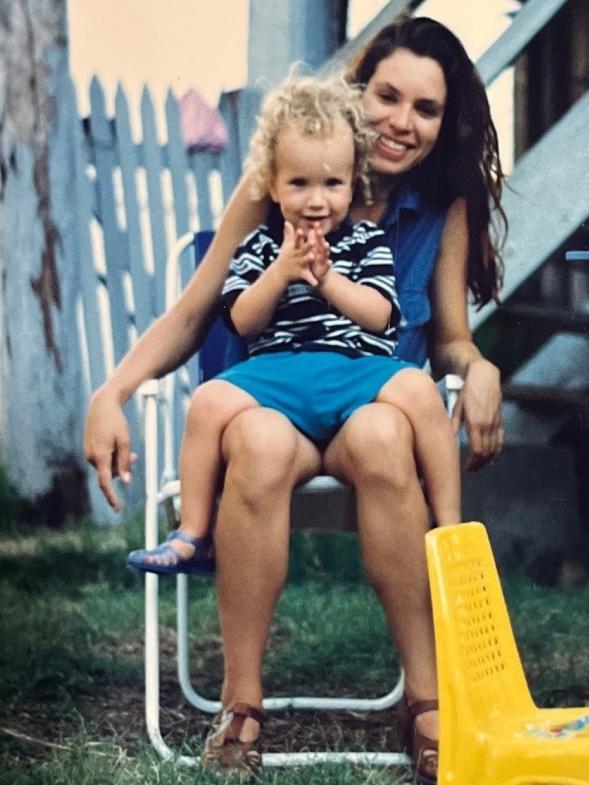
Chandler-Mather tells campaign volunteers they’re “life knocking”, not just canvassing for votes. By all means talk up the Greens’ holy trinity of action on climate change, emissions reduction and ending coal mining, but make sure you ask what’s going in the neighbourhood because “people are experts in their own lives”.
On the hustings in Griffith, he climbed on the local issue of aircraft noise and highlighted the Greens’ policies to expand Medicare to fully cover dental health and build more public housing. “The success of our campaign was that we could bring a platform to bear that appeals to so many aspects of people’s material lives,” he says, sounding very unGreen-like. In the next breath he’s on an old-fashioned redistributive bandwagon, explaining how they would slug billionaires and mining companies to fund their campaign promises, including a “job for job guarantee” for displaced coal workers to subsidise up to half of their six-figure mining salaries for a decade.
No, the Greens won’t give up on net-zero by 2035, Chandler-Mather says, echoing Bandt. When the new parliament convenes in late July he will join colleagues in pushing Labor to lift its emissions target – even though Albanese has ruled that out repeatedly. Does he really believe the PM would walk away from an election commitment and blow up the show before it got going? Labor went there, did that, under Rudd and Julia Gillard and if there’s any certainty in politics, it’s that the lessons from that debacle have been absorbed by the ALP.
The young man sighs. “To be honest, I haven’t fully formed my view yet,” he says. “But it will be interesting to see, notwithstanding Albanese’s rhetoric, the willingness of Labor to come to the table on this because it’s not just us, it’s the teals, [ACT Independent] David Pocock coming into the Senate… and I think the election result showed that the public has moved a long way on the need for action on climate change. The idea that a negotiated increase in the emissions target would somehow be unpopular is wrong, and it’s up to us to convince parliament that that’s the case.”
The Greens have done their own share of reflecting, he says. Take Bob Brown’s “Stop Adani” convoy protesting against the controversial Indian- owned coal mine during the 2019 federal election campaign. Chandler-Mather accepts this was a mistake, though he won’t wear Labor’s accusation that it helped sink the ALP vote in regional Queensland. “I wouldn’t have done that,” he says of the now notorious rolling demonstration. “As any good community organiser would know… you need to spend not just a day in a community to bring people together and get them on board a political project – you need to spend years there, helping with community infrastructure projects, helping with local issues by becoming part of the community.”
What about the party’s 2009 decision to blow up Rudd’s emissions trading scheme? It’s Exhibit A for those prosecuting the case that the Greens don’t know how to compromise, the very art of politics. Chandler-Mather is adamant Brown and Milne did the right thing. “I don’t accept the premise of that point, which is somehow [that] we have this history of letting the perfect be the enemy of the good, given that the only substantial climate legislation that has ever passed parliament was because the Greens negotiated it with the government of the day.”
He’s a work in progress, all right, as his proud father recognises. Mather says: “His politics are quite doctrinaire, pretty left-wing, but he has got a much more nuanced take on things these days, and I think it is through talking to people… his face lights up talking to people.”
Now Canberra beckons, where the conversations will get a lot more serious, where both the stakes and shimmering rewards are that much greater. A principled newcomer unschooled in the ways of the big house on the hill is always worth watching, because you never know where they will end up and what good they might do. Or not.
Butler, who declined to be interviewed for this story, had a parting message for her successor in Griffith when she conceded last month, capturing the spirit of their contest. “I wish the new Member well in delivering on all the promises he has made,” she tweeted. Welcome to your new life, Max.


To join the conversation, please log in. Don't have an account? Register
Join the conversation, you are commenting as Logout